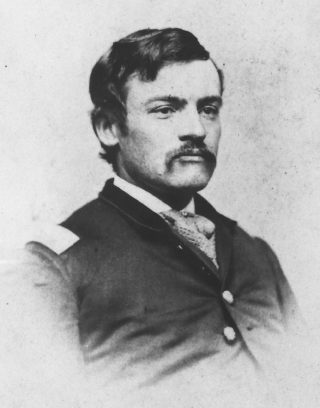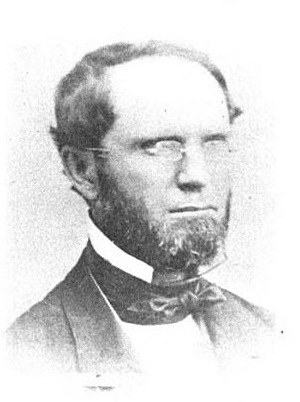Lavinia passes the bar: “[T]he judge proceeded to question us in quite an alarming manner”
Today, in most states, the bar exam involves an 8-week prep course and several days of written tests, which are administered at set times each year. In 1874, the experience was quite different, especially for Lavinia Goodell, the first woman admitted to the bar in Wisconsin.
Lavinia hoped to be admitted to the Rock County Circuit Court in the spring of 1874. Prepping wasn’t her problem. She called studying law “my first love” and happily read “2nd Vol. Revised Statutes,” “Constitution, of Wis.,” “laws passed by the last session of the legislature” while caring for her elderly parents, doing “copying” for practicing lawyers, and campaigning for women’s rights and temperance.
For Lavinia, the biggest challenge was just scheduling the test. Back then, a lawyer had to move the circuit court to admit a candidate to practice, and the court had to conduct an oral examination. Pliny Norcross, a Janesville lawyer who had supported her legal studies, offered to move for her admission. But he kept dragging his feet. On June 2, 1874, she went to the Rock County Circuit Court expecting to hear the motion, but Norcross was “too busy” and his backup “eloped.” “Confound him! Feel real provoked,” she wrote.

On June 3rd Norcross told Lavinia that there was a “difficulty” about her being admitted: she was female. She researched the matter and wrote to the Milwaukee County Circuit Court clerk for information about a female law student there named Lily Peckham. Norcross finally made the motion on June 11th, but Judge Harmon Conger didn’t schedule the exam. Lavinia waited and waited. June 15th she wrote in her diary: “Saw the moon over my right shoulder, which I am in hope is an augury of my success.” June 16th: “No examination today. Don’t know when. Am getting impatient.”
At 5:00 p.m. on the 17th Lavinia learned that “the prospect looked dubious.” Judge Conger was rushing to finish a case. However, a young man had just arrived from Beloit to be examined, so she might as well go to court. She found the young man “very cordial and gallant” and dreading the examination as much as she was. Accommodating the young man’s desire to return to Beloit that night, Judge Conger “suddenly and unexpectedly” held the bar examination a few minutes later at 6:00 p.m.

The exam began with the objection that Lavinia was anticipating: only men could practice law. She wrote:
I had an argument all prepared to fire off at him, if necessary. I was all bristled up, and going to appeal, and make a fuss generally if I got refused. However, it seems the judge studied up, too, and came to the conclusion that I could be legally admitted if I passed the examination.
She told her cousin, Sarah, that a committee of “three old and able lawyers” examined them for more than hour “in a most excruciating manner, asking the aggravatingest questions they could think of.”
However, we weathered the storm very well and I do not think I suffered any by comparison with my colleague. When the committee got through, the judge proceeded to question us in quite an alarming manner, and finally required us to draft affidavits in his presence. As I had never drafted any papers without the form book before me, it was quite a trial, but I did it without mistakes.
The committee then returned with a favorable report, and we were sworn in, and signed our names on the roll of attorneys.
Obtained my certificate this morning, which looks some like a diploma, and I am as pleased with it as a little boy with his first new boots. I returned home quite late and astonished my parents very much by the intelligence of my admission.
Lavinia had planned to wear the “overskirt and waist” from her Brooklyn Seminary graduation dress “for the romance of it.” Because she had no advance notice of the exam, she couldn’t.
Father was intending to be present, but was cheated out of it. I had intended also to wear my good clothes on that solemn occasion, but alas! Had on the old buff linen shirt, and a two year old calico polonaise, second best hat, and dirty cloth gloves. However, I was too thankful to be admitted in anything, to grumble much about it.
In a separate letter to her sister, Maria, Lavinia said:
Can you realize that your ‘little sister’ is a member of the Wisconsin bar! Such is the solemn fact . . . Now for Practice! Don’t you want to sue somebody? If you know anyone who does, send them to me. I can do it splendidly. I am the first woman admitted in the State. I didn’t suffer in the examination by comparison with my colleague.
Your Aff. Sis, Lavinia Goodell, Attorney at Law
Sources Consulted: Lavinia Goodell’s Diaries, September 17, 1873, April 1 through June 18, 1874; Lavinia Goodell letter to Maria Frost, June 18, 1874; Maria Goodell Frost, Life of Lavinia Goodell (unpublished manuscript).







